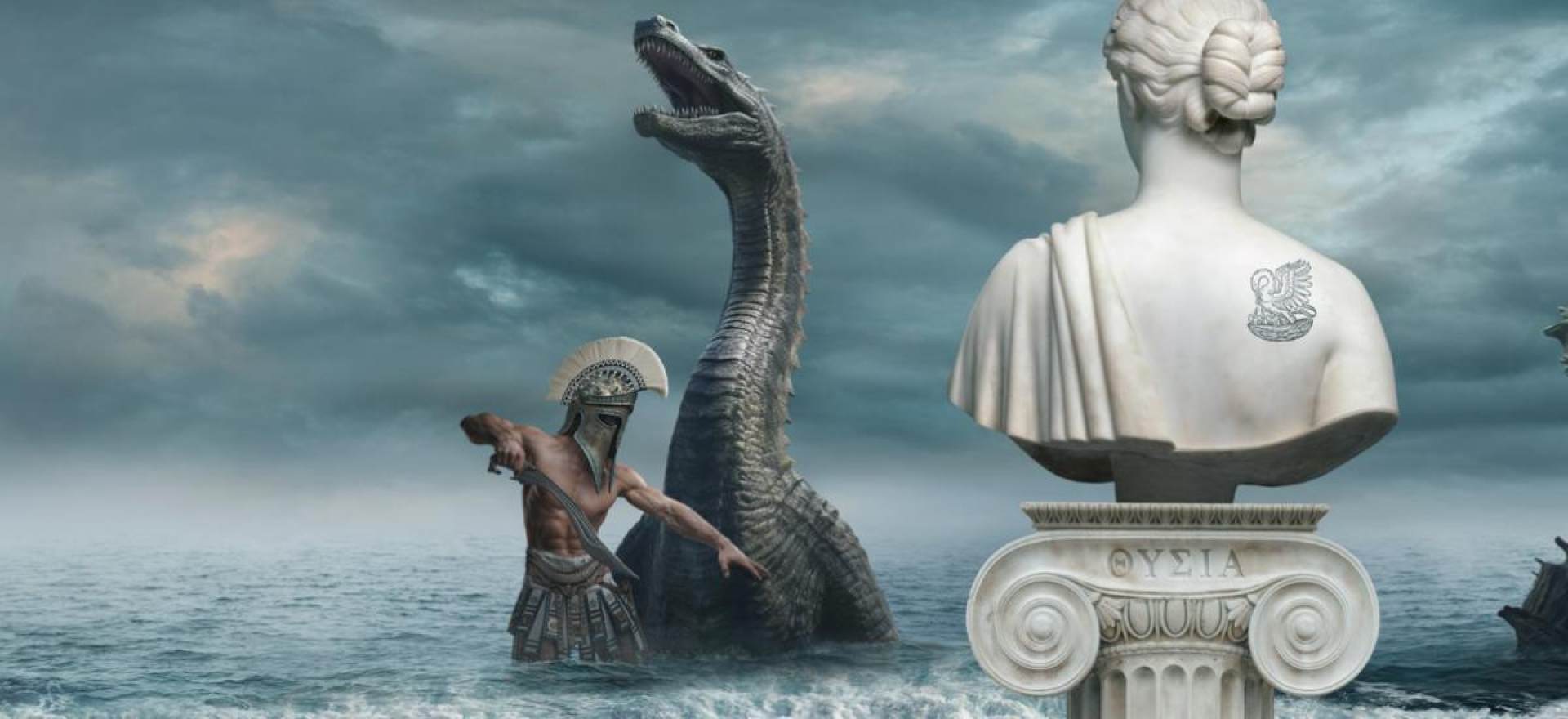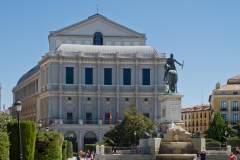Idomeneo
Mo | Tu | We | Th | Fr | Sa | Su |
This Mozart opera telling the mythological story of King Idomeneus, returns to the Teatro Real with the Freiburger Barockorchester and the Zürcher Sing Akademie vocal ensemble under the musical direction of René Jacobs. Benoît de Leersnyde is the stage director.
Opera seria in three acts, KV 366
Music by Wolfgang Amadeus Mozart (1756-1791)
Libretto by Giovanni Battista Varesco, based on Idomenée, by Antoine Danchet
Premiered at the Residenztheater in Munich on 29 January 1781
Premiered at the Teatro Real on 17 July 2008
Semi-staged concert version
Synopsis
Overture
The overture, in D major and common time, is in a modified sonata form in which the development is but a very short transition section connecting the exposition with the recapitulation. Other conventional hallmarks of the sonata form are apparent: the exposition modulates from the tonic (D major) to the dominant (A major), while the recapitulation is centred on the tonic. The overture concludes with a coda ending in D major chords. These chords, soft and tentative, turn out not to be a resolution of the overture in the tonic but chords in the dominant of G minor, which is the home key of the scene that immediately follows.[17]
Act 1
Island of Crete, shortly after the Trojan War. Ilia, daughter of the defeated Trojan King Priam, has been taken to Crete after the war. She loves Prince Idamante, son of the Cretan King Idomeneo, but hesitates to acknowledge her love. Idamante frees the Trojan prisoners in a gesture of good will. He tells Ilia, who is rejecting his love, that it is not his fault that their fathers were enemies. Trojans and Cretans together welcome the return of peace, but Electra, daughter of the Greek King Agamemnon, is jealous of Ilia and does not approve of Idamante's clemency toward the enemy prisoners. Arbace, the king's confidant, brings news that Idomeneo has been lost at sea while returning to Crete from Troy. Electra, fearing that Ilia, a Trojan, will soon become Queen of Crete, feels the furies of the underworld rise up in her heart (aria: "Tutte nel cor vi sento, furie del crudo averno" – "I feel you all in my heart, furies of the cruel underworld").
Idomeneo is saved by Neptune (god of the sea) and is washed up on a Cretan beach. There he recalls the vow he made to Neptune: to sacrifice, if he should arrive safely on land, the first living creature he should meet. Idamante approaches him, but because the two have not seen each other for a long time, recognition is difficult. When Idomeneo finally realizes the youth that he must sacrifice for the sake of his vow is his own child, he orders Idamante never to seek him out again. Grief-stricken by his father's rejection, Idamante runs off. Cretan troops disembarking from Idomeneo's ship are met by their wives, and all praise Neptune.
Act 2
At the king's palace, Idomeneo seeks counsel from Arbace, who says another victim could be sacrificed if Idamante were sent into exile. Idomeneo orders his son to escort Electra to her home, Argos. Idomeneo's kind words to Ilia move her to declare that since she has lost everything, he will be her father and Crete her country. As she leaves, Idomeneo realizes that sending Idamante into exile has cost Ilia her happiness as well as his own. Electra welcomes the idea of going to Argos with Idamante.
At the port of Sidon (a fictional city of Crete), Idomeneo bids his son farewell and urges him to learn the art of ruling while he is away. Before the ship can sail, however, a storm breaks out, and a sea serpent appears. Recognizing it as a messenger from Neptune, the king offers himself as atonement for having violated his vow to the god.
Act 3
In the royal garden, Ilia asks the breezes to carry her love to Idamante, who appears, explaining that he must go to fight the serpent. When he says he would rather die than suffer the torments of his rejected love, Ilia confesses her love. They are surprised by Electra and Idomeneo. When Idamante asks his father why he sends him away, Idomeneo can only reply that the youth must leave. Ilia asks for consolation from Electra, who is preoccupied with revenge. Arbace comes with news that the people, led by the High Priest of Neptune, are clamoring for Idomeneo. The High Priest tells the king of the destruction caused by Neptune's monster, urging Idomeneo to reveal the name of the person whose sacrifice is demanded by the god. When the king confesses that his own son is the victim, the populace is horrified.
Outside the temple, the king and High Priest join Neptune's priests in prayer that the god may be appeased. Arbace brings news that Idamante has killed the monster. As Idomeneo fears new reprisals from Neptune, Idamante enters in sacrificial robes, saying he understands his father's torment and is ready to die. After an agonizing farewell, Idomeneo is about to sacrifice his son when Ilia intervenes, offering her own life instead. The Voice of Neptune is heard. Idomeneo must yield the throne to Ilia and Idamante. Everyone is relieved except Electra, who longs for her own death. Idomeneo presents Idamante and his bride as the new rulers. The people call upon the god of love and marriage to bless the royal pair and bring peace.
Program and cast
Artistic team
Musical conductor: René Jacobs
Artistic assistant: Benoît de Leersnyder
Cast
Idomeneo: Emiliano González Toro
Idamante: Olivia Vermeulen
Ilia: Polina Pastirchak
Electra: Kateryna Kasper
Arbace: Mark Milhofer
High priest of Neptune: Kresimir Spicer
The voice of the Oracle of Neptune: Yannick Debus
Zürcher Sing-Akademie
Freiburger Barockorchester
Teatro Real
The Teatro Real is Spain's leading opera house. It is considered to be the top institution in the country in the music and performing arts field.
The Teatro Real Foundation is chaired by the King and Queen of Spain. It relies on two public administrations that took part in its creation: the Ministry of Education, Culture and Sports, and the Comunidad de Madrid (Regional Government of Madrid). The Foundation is governed by a Board of 31 trustees. The Board of Trustees elects the President of Board and the Executive Commission as proposed by the Ministry of Education, Culture and Sport. The Foundation is a public entity and there is an important role played by civil society in its governance and sponsorship.
The objective of the Teatro Real is to create a venue for the most talented singers, conductors ands stage directors from around the world. Its artistic mission is expressed in programming which seeks excellence by combining classical and contemporary lyrical repertory to appeal to audiences of all ages and interests. Introducing young people and children to opera is of particular concern. All this, along with the Principal Chorus and Orchestra of the Teatro Real, the most up to date technological expertise and the large number of in house productions on stages around the world has firmly positioned the Teatro Real in Spain and abroad.

 EN
EN DE
DE IT
IT FR
FR ES
ES RU
RU JP
JP RO
RO
 Seating plan
Seating plan 